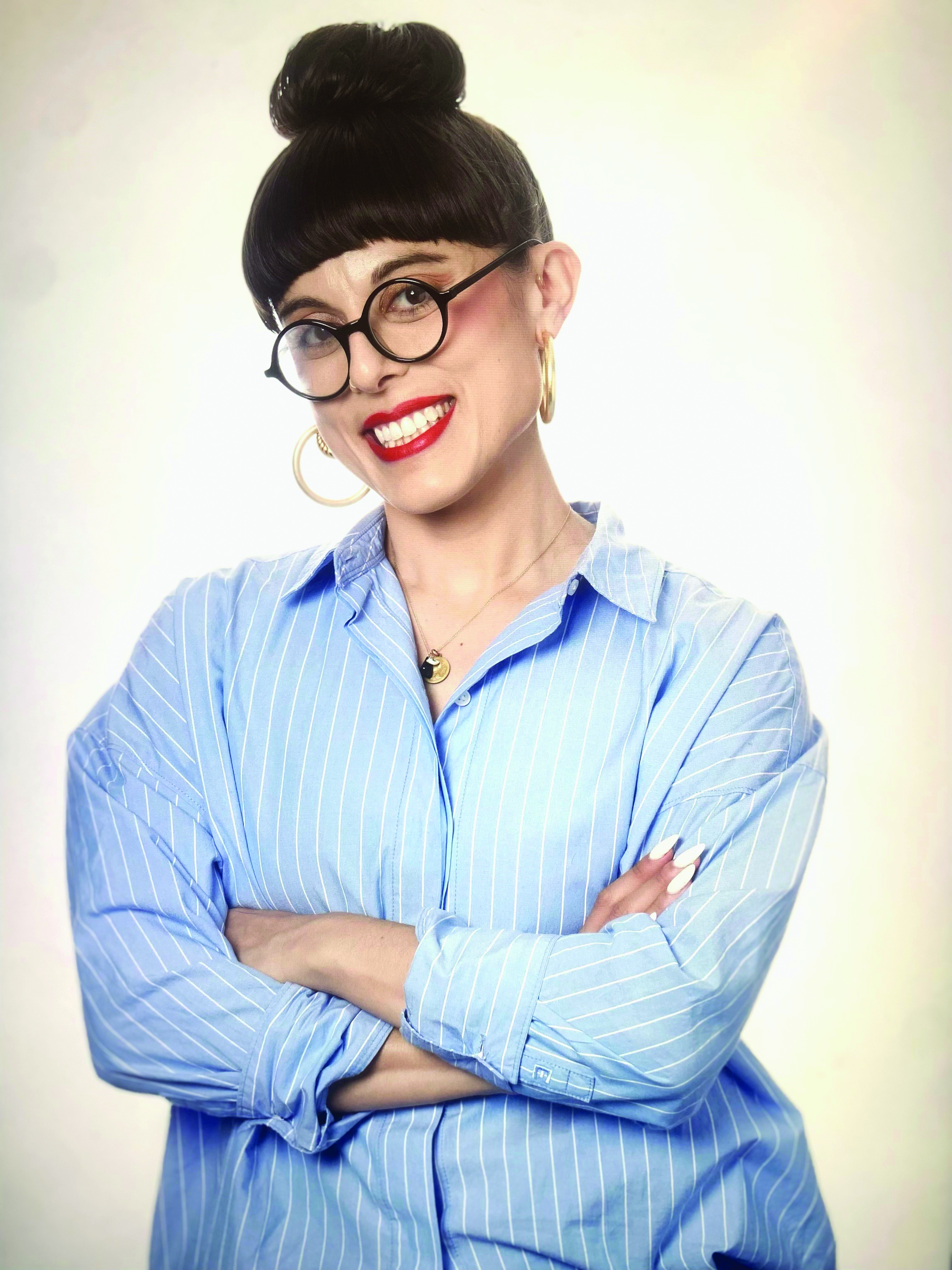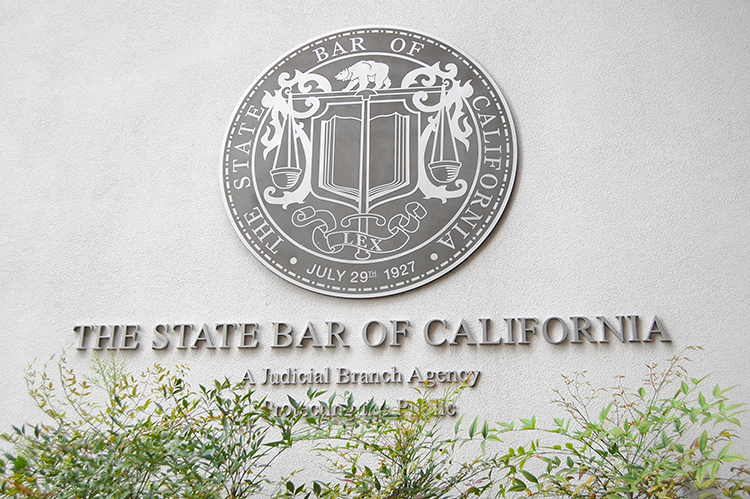Youth Movement: Sarah Medina Camiscoli works for and with young leaders in New York City

Sarah Medina Camiscoli. Photo by Echoing Green.
For Sarah Medina Camiscoli, profound questions of how and why educational and legal systems exclude and harm young people arose from her own experience as a public school student in New Jersey.
She was born in Paterson, a diverse city and major destination for new immigrants but moved with her family to a predominantly white suburb in North Jersey when she was 4. Her father was a mechanic and a small-business owner, and her mother, who is from the Puerto Rican diaspora, held various administrative jobs.
Medina Camiscoli remembers someone writing a racial slur on their mailbox and telling them to “go home.” She also remembers loving school but being treated unfairly by teachers and other students because of her ethnicity and socioeconomic status. In one unforgettable instance, she was asked to leave the test for her school’s gifted and talented program because she didn’t know what people should wear on a boat.
She was in first grade and had never been on a boat.
“For me, I think there’s sort of a deep inner child longing to make sense of, ‘Why wasn’t I given certain opportunities in school?’” says Medina Camiscoli, an assistant professor at Rutgers Law School who teaches education law and critical youth legal studies. “And why was I able to get access to a very resourced school district, though, where some other people in my community and my family weren’t necessarily given the same opportunity?”
Medina Camiscoli also has confronted issues related to another childhood experience—attending a Catholic high school while struggling to understand her sexuality. She identifies as a member of the LGBTQ+ community, but at the time, she thought there was something wrong with her and was afraid to talk about it. “That was a very painful experience for me as well, yet school was a place where I got access to ideas and opportunities,” she says. “It’s in that tension that I think my work really lives: How do we create education? How do we create spaces and institutions that help young people make sense of who they are? And do that safely, in a way that has dignity and invites them to participate in our democracy?”
Higher education
Medina Camiscoli has explored answers to these questions for more than a decade—first as a public school teacher and then as a lawyer in New York City.
She graduated from Columbia University in 2012 with a bachelor’s degree in sociocultural anthropology and Hispanic studies, and began teaching English as a second language at a middle school in the South Bronx. She chose the area because it’s where her grandmother arrived as an unaccompanied minor from Puerto Rico in the 1930s. It’s also where her mother attended school as a child.
In 2014, UCLA’s Civil Rights Project released a report finding New York schools were the most segregated in the country. Medina Camiscoli wasn’t surprised. On her first day teaching, she realized most of her students were funneled into her class even though they spoke only English and not Spanish or another language.
But she was not disheartened, and that same year, she founded IntegrateNYC, a youth-led organization that brings together students from across New York City to build equity and justice in their schools. She helped the organization create “the 5 Rs of Real Integration,” which she describes as the first intersectional platform on integration designed by young people of color. The five elements are race and enrollment, restorative justice, resources, representation and relationships.
Medina Camiscoli also helped students successfully advocate for their platform. In 2019, it became the basis for the New York City Department of Education School Diversity Advisory Group’s recommendations for creating diverse schools. Then-New York City Mayor Bill de Blasio later adopted those recommendations.
Unfortunately, they were largely set aside because of COVID-19 in spring 2020, says Medina Camiscoli, who by then had started at Yale Law School. She was disappointed and became even more eager to use her law degree to empower young people.
“As a first-generation Latina advocate, I couldn’t continue to have our young people experience this game,” says Medina Camiscoli, who also worked for Columbia Law School’s Center for Intersectionality and Social Policy Studies as an undergraduate. “You show up, you advocate, you go through the process, you follow the rules and you expect the system to work. But these young people experience time and time again … promises are broken.
“What does that do to a generation of people who’ve already experienced marginalization? They see law and legal institutions as something to distrust, as dysfunctional.”
Elise Boddie was a professor at Rutgers Law School when she asked Medina Camiscoli to talk to her students about school segregation. Boddie was impressed by the way she engaged young people through IntegrateNYC and created a structure that allowed them to lead the organization.
“Her work at IntegrateNYC was so foundational and had a big impact in New York City,” says Boddie, who followed Medina Camiscoli’s approach with the Inclusion Project. The organization, which she founded, worked with community partners to build equitable public schools in New Jersey.
“She’s not just someone who thinks outside of the box—she’s going to destroy the box and remake the box,” adds Boddie, now a professor at the University of Michigan Law School.
Peer Defense Project
While at Yale, Medina Camiscoli studied movement lawyering, in which lawyers help directly impacted communities use the law to create, protect and defend movements for social change.
She graduated in 2021 and became a Justice Catalyst Law fellow and joined the Opportunity Under Law project at nonprofit law firm Public Counsel in Los Angeles, where she helped bring a major lawsuit against New York City and the state of New York demanding a right to an anti-racist education. Plaintiffs include IntegrateNYC and several middle and high school students. The case was dismissed in June 2022 and is now on appeal.
“The lawsuit in and of itself becomes a tool for civic education and a tool for real understanding of the law, because young people see the way it’s relevant to their lives and the ways in which they are critical people to be engaging with it,” Medina Camiscoli says.
During her fellowship, she also helped launch the Peer Defense Project, an intergenerational movement lawyering initiative that builds legal tools and practices to support youth leaders in New York City. They include a Youth Freedom Law School, which provides youth free legal information and educational materials; and Youth Defense Network, which pairs young people with attorneys who offer free mentorship and representation.
Medina Camiscoli serves as the founding co-executive director of the Peer Defense Project, which originated as part of IntegrateNYC but became an independent nonprofit organization in July. To her, its work is novel, and she helps lead with not only movement lawyering but also critical race theory and legal realism in mind.
“I think what’s new about what I’m doing is integrating all those frameworks with young people, for young people,” says Medina Camiscoli, who joined the ABA after law school and was a recipient of the Young Lawyers Division’s On the Rise Award in 2022. “That’s something I haven’t seen done before—genuinely sharing power with young people to design movement lawyering strategies that support youth freedom dreams.”
“Peer Defense operates at the intersection of legal empowerment and movement lawyering so that youth who face injustice can build power and transform law,” she adds.
Aissatou Barry, the founding board treasurer of the Peer Defense Project, works alongside Medina Camiscoli. The civil rights attorney and clinical professor at Brooklyn Law School says her colleague brings the concept of client-centered work to another level, involving youth in every aspect of their initiative.
“Sarah has taken her experience as a teacher in the New York City public school system and used that to be the foundation and a tool for the transformational work she does,” Barry says. “There are always different ways to provide legal representation, and I think Sarah has found something special with the way the Peer Defense Project does that.”
Members Who Inspire is an ABA Journal series profiling exceptional ABA members. If you know members who do unique and important work, you can nominate them for this series by emailing [email protected].
This story was originally published in the October-November 2023 issue of the ABA Journal under the headline: “Youth Movement: Sarah Medina Camiscoli works for and with young leaders in New York City.”



